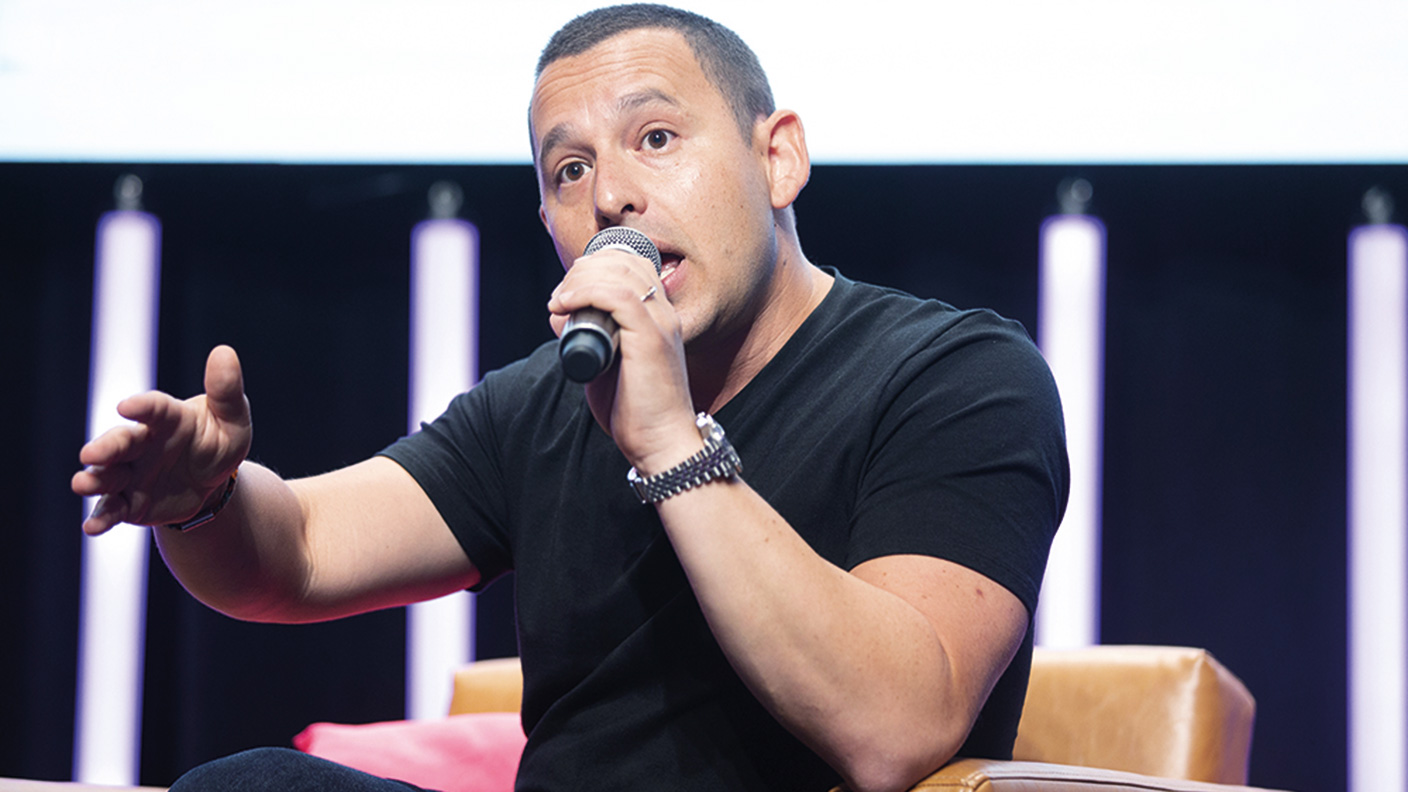Andrew Crawford: fear is the biggest obstacle to success
Andrew Crawford went head to head with Amazon selling books online. It was a gamble that paid off. This year, his firm, the Book Depository, expects to sell £60m worth of books.

Get the latest financial news, insights and expert analysis from our award-winning MoneyWeek team, to help you understand what really matters when it comes to your finances.
You are now subscribed
Your newsletter sign-up was successful
Want to add more newsletters?

Twice daily
MoneyWeek
Get the latest financial news, insights and expert analysis from our award-winning MoneyWeek team, to help you understand what really matters when it comes to your finances.

Four times a week
Look After My Bills
Sign up to our free money-saving newsletter, filled with the latest news and expert advice to help you find the best tips and deals for managing your bills. Start saving today!
It sounds like a suicidal business plan: going head to head with Amazon, selling books over the internet. But "just because Amazon is the biggest internet book retailer, doesn't mean you can't enter the market", says Andrew Crawford, 37. "It just means you have to think of clear differences between yourselves and them." And having the guts to go ahead has paid off for the Gloucester-based entrepreneur, who has built a £41m-a-year business due in no small part to his own experience of working for Amazon.
The son of an Irish businessman, who worked for an international trading business in Africa, Crawford spent his early years "getting held up at gunpoint at airports, from Sierra Leone to Liberia". An engineering graduate, he later worked for an agricultural franchise run by his father in the Midlands, before joining a small internet firm called Book Pages in 1996. An early foray into the dotcom arena, Book Pages was bought out by Amazon in 1997. Crawford spent the next three years learning about everything from supply chains to how to handle enormous increases in sales. In 2000 he left, after cashing in some stock options, and immediately began planning a similar online book retailer that would stand apart from other booksellers.
With £10,000 in savings, in 2004 he set up the Book Depository in a 500 sq ft office in Gloucester. A local government scheme aimed at partnering entrepreneurs with academics saw him join forces with Bath University's computer science department to develop his own logistics system. "Although we couldn't get the same terms as Amazon from publishers, we could operate from a lower cost base." That was because, thanks to the new system, books would pass in and out of his warehouse within hours. "We wouldn't hold stock. The UK is the centre of the book industry. There are more books here than anywhere else in the world. So from a supply-chain perspective, we're very central."
MoneyWeek
Subscribe to MoneyWeek today and get your first six magazine issues absolutely FREE

Sign up to Money Morning
Don't miss the latest investment and personal finances news, market analysis, plus money-saving tips with our free twice-daily newsletter
Don't miss the latest investment and personal finances news, market analysis, plus money-saving tips with our free twice-daily newsletter
He also offered customers free worldwide delivery, a smart marketing move "which gave us a really good competitive advantage". Most importantly, he focused on what he calls "the long tail" of the market, selling books that big high-street players would never stock. "WH Smith and Tesco can fight over core titles. That's where all the competition is. We concentrated a lot more on rare titles." These included books on everything from thermodynamics to knitting books that would never make the bestseller lists, but where there was a clear demand from niche readers.
By selling through internet channels, including Alibris and Amazon, "we were running a very cash-positive business. We were getting money from our customers the same day, but we didn't have to pay our suppliers for 30-60 days." Sales hit £2.2m in the first year, rising to £11m in the second, £26m in the third and £41m last year. This year, he expects to sell £60m worth of books. "Someone who wants to start up their own business first has to recognise the risks. That's the big stumbling block. But if you can get over the whole fear factor, you can do very well. If you've got a good idea and other people think so too, go with it and worry about the consequences later."
Get the latest financial news, insights and expert analysis from our award-winning MoneyWeek team, to help you understand what really matters when it comes to your finances.
Jody studied at the University of Limerick and was a senior writer for MoneyWeek. Jody is experienced in interviewing, for example digging into the lives of an ex-M15 agent and quirky business owners who have made millions. Jody’s other areas of expertise include advice on funds, stocks and house prices.
-
 What is a care fees annuity and how much does it cost?
What is a care fees annuity and how much does it cost?How we will be cared for in our later years – and how much we are willing to pay for it – are conversations best had as early as possible. One option to cover the cost is a care fees annuity. We look at the pros and cons.
-
 How to navigate the inheritance tax paperwork maze in nine clear steps
How to navigate the inheritance tax paperwork maze in nine clear stepsFamilies who cope best with inheritance tax (IHT) paperwork are those who plan ahead, say experts. We look at all documents you need to gather, regardless of whether you have an IHT bill to pay.
-
 What is Jeff Bezos' net worth?
What is Jeff Bezos' net worth?Jeff Bezos' net worth stems from his large holdings in Amazon stock. We look at how he established the world’s biggest e-retailer, his space and media investments, and what’s in store for the James Bond franchise
-
 Harley Finkelstein’s Shopify: the “Amazon for entrepreneurs”
Harley Finkelstein’s Shopify: the “Amazon for entrepreneurs”Profiles Shopify started as a snowboard shop that baulked at gifting its customers to Amazon. Now,it is an essential part of the internet’s infrastructure. Harley Finkelstein, the firm’s driving force, is aiming higher.
-
 Atul Gawande: the writer shaking up US medicine
Atul Gawande: the writer shaking up US medicineProfiles Atul Gawande doesn’t have the sort of CV you’d expect for someone running a healthcare joint venture between Amazon, Berkshire Hathaway and JPMorgan. That’s exactly why he was chosen. Jane Lewis reports.
-
 Five questions for Daniel Burton, founder & CEO of Wondrwall
Five questions for Daniel Burton, founder & CEO of WondrwallFeatures Daniel Burton's company, Wondrwall, converts standard homes into “intelligent” ones.
-
Jeff Bezos: the garage inventor who set up Amazon
Profiles Jeff Bezos, founder of Amazon, has made no secret of his desire to usurp Apple in the tablet market. And the new Kindle Fire has certainly got some pundits excited - is it time to snap up Amazon shares?
